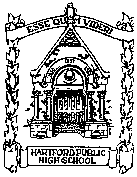
 |
|
|
| class, a tiny sample of the middle class, and no rich kids at all. Why? Two forces are at work. First, there's the pressure on responsible parents to educate their kids somewhere else. Whether these families are right or not that the quality of education is inferior in the inner city, that's the perception, and it skims off lots of kids whose parents can afford something else. Kids with big academic potential or exceptional athletic ability or musical gifts are rarely seen now. Their parents make other arrangements, long before high school. If necessary, they "reside" with a relative in the suburbs. Anything to steer clear of the Hartford schools. The other force is the poor quality of reading instruction in our lower grades. Our schools abandoned traditional methods of reading instruction a generation ago, and now only a small minority of kids can read at grade level by the time they reach high school age. They have been promoted without regard to reading fluency. That's changing now, but the reforms are recent, and they are still failing in alarming numbers each year at HPHS; half a generation of this has changed the school. In 2001, HPHS graduated so few students that the administration "forgot" to hire the Bushnell and sent them forth (at a substantial cash savings) from an ugly gymnasium in the new Learning Corridor magnet school. (continued on Page Two) * * * Volume 2, Number 3: Fall 2000 Published in Hartford, Connecticut, by the Hartford Public High School Alumni Organization Editor Steve Fournier ’63 Tel. (860) 233-3044 74 Tremont Street Hartford 06105 $5 per year (print and/or e-mail) | ||
|
Accreditation was hanging in the balance, an unimaginable circumstance to four or five surviving generations of grads, and these Class of '55 and Class of '56 activists thought they might be able to do something as part of the HPHS community. Early initiatives The easiest thing most of us can do in the way of community involvement is to donate some money, and the group managed to raise a small quantity of it early. Inasmuch as the library had been cited as a weak spot by the accreditation people, the boosters established a library fund. They also discovered that the school's collection of portraits of principals stopped with L. Henry Taylor, and a committee was established to commission portraits of his successors, beginning with C. Duncan Yetman. The school administration referred the boosters to history teacher Robert "Luke" Williams, who was then in the process of safeguarding and preserving documents and artifacts of HPHS history. The group "adopted" Williams' history project, making it a part of the alumni mission, and he became de facto faculty liaison. The group organized a social gathering, and I received a piece of mail. Boosters and reformers There are two kinds of people you can have in your organization. There are boosters. They find out what's good about something and promote it by emphasizing these features. And there are critics. They find out what's wrong with something and try to get it reformed. You can't be a booster and a critic at the same time. I tend to fall into the latter category.
|
Besides that, I'd served a quarter of a term on the Hartford Board of Education, which was dissolved in favor of a state-appointed board not long after I resigned in protest.
By the time I got there, the Hartford Public Schools had become a rat's nest of patronage and nepotism, depopulated in the upper echelons, ostensibly to save money, but in the end leaving the schools totally unaccountable. Ten years or more of corrupt political leadership had eroded the footings under our educational superstructure, culminating in an illegal contract that surrendered the entire school system to private management.
What I saw What the negligence of these leaders did to HPHS was a crime. They choked off our supply of kids. We used to get the entire working class population, nearly all the middle class, and more than a few rich kids. Kids of people who worked in the city drove in from rural towns to take advantage of what HPHS had to offer.
Now we get part of the working
| |